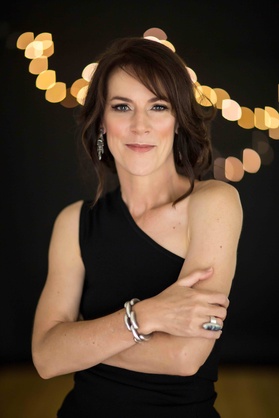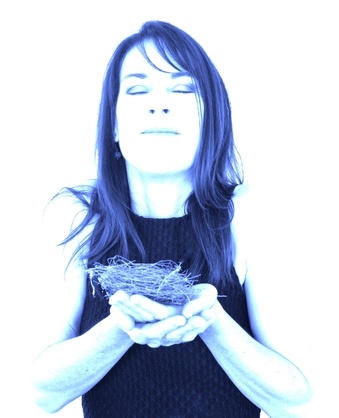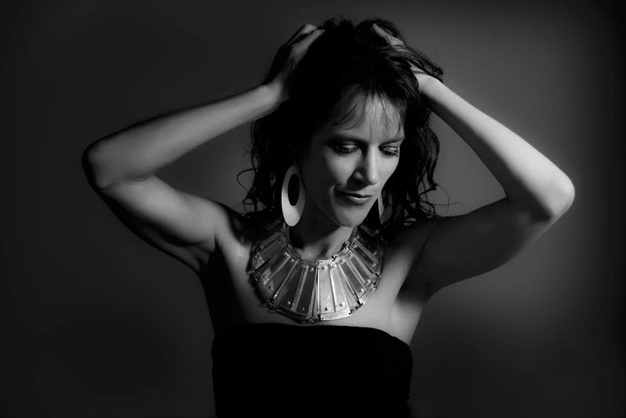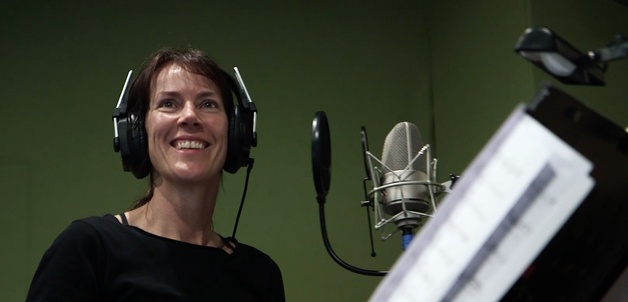Leigh Carriage





Tunes by Leigh Carriage
- All While You SleepBallad · 2010-2020 · Medium · Vocal · F · 4/4
- CatapultStraight · 2010-2020 · Medium · Vocal · F · 4/4
- Rise and FallBallad · 2010-2020 · Medium · Vocal · Db · 4/4
- Complicated LoveStraight · 2010-2020 · Medium · Vocal · F#/Gb · 4/4
- FilamentSwing · 2010-2020 · Medium · Vocal · D · 5/4
- Second MoonLatin · 2010-2020 · Medium · Vocal · C · 4/4
- True NorthLatin · 2010-2020 · Medium · Vocal · Eb · 4/4
Biography
Blessed with stunning crystal-clear tone and pitch, her nuanced delivery, masterful story and compositions mesh divinely, weaving stories ancient and new. There’s a timeless quality to her singing, likened to water flowing over river stones.
You say that when you embark on an album you really push yourself. What do you mean exactly? How do you stretch yourself outside your comfort zone?
After any creative project there is a time of reflection, and that reflection from my last album, Mandarin Skyline, has fed directly into this project, along with new ideas from the intervening months. It’s a deliberate choice to include some angular melodies, to discover new harmonic pathways and a broad range of approaches to lyrical writing – some collaboration continues to be an important aspect. This is the first time I have written for string and horn sections.
How have your gigs launching Weave gone so far? It’s not with the same band, so how do you step in and out of the music with different musicians? Does it give you an edge each time?
Weave’s initial launch was at the Wangaratta Jazz Festival with some of the musicians who recorded it. We had a full house and the music was really well received. The Australian jazz community is very tightly interconnected, so in capital cities we’re able to connect with musicians we know or who are recommended. Again each time I commence a new project there are improvements in some technologies to speed the sharing process like electronic charts etc. By using a different ensemble on this tour each performance contains subtle differences, improvisations, dynamics approaches etc.
I am curious about Backstepping. You say this is the first song you were able to write about your car accident. Can you tell me a little about it?
It’s ironic that I’m writing this today as it’s the tenth anniversary of my accident. We all tend to think about our own death and mortality at various points, when it might happen and how. But it’s not until you’re right on the precipice that you see your own fragility. I was just driving home from work and next thing I was at the precipice, surrounded by strangers. Backstepping is about the deep inner fight for survival, certainly directly after the impact of the accident, but also in the years afterwards, living with permanent changes to your body – that is the really constant daily growth. Often one step forwards and two backwards – strength of spirit and fragility of the body. It’s hard to articulate and words are inadequate. Strings are the instrument closest to the voice – so I have used a beautiful string quartet on this song to echo the emotion in the lyric and for what cannot be said lyrically.
What about Complicated Love? What was the impetus for sharing your very personal story on this album?
Julia Gillard’s apology to victims of forced adoption came in 2013 just after the completion of Mandarin Skyline, and has been a slow-burning catalyst in my thinking since. I co-wrote this song with Justine Bradley, and we share the concept of loss of mother. With some things you feel like it’s just the right time, like you’re personally ready. Much like the accident, the complexity and entanglement of outcomes is a lifelong lesson. The impacts of adoption are layers deep – in relationships, reunions with birth parents, half-siblings, your own identity and misplaced belonging – it has always been complicated. I also wanted to put a voice to these feelings and to acknowledge a lot of complicated loss.
This album seems to be telling stories deep from your heart – from hard places as well as the light, as a musician how does song and music help navigate complex emotional journeys?
Every note has a harmonic, and that harmonic has a frequency, and that frequency resonates – sound itself has a beauty and is a transportation device. Two songs on Weave, Filament and Blank Slate, are wordless so the sound of the voice and the melody is even more poignant. When frequency is coupled with word, it becomes a mighty conveyor of emotions. I think because of my past I’ve never been frightened to sing the sad songs. But since my accident I also equally want to sing about the joy. In many ways I feel more in balance. What is a healing for me I hope can also be of value for others.
How do you approach a recording session? How did you feel about the outcome?
With great amounts of preparation: 98 per cent of the work is done before you get to the studio – the composition, creative endeavour that manifests into scores and arrangements, selecting musicians etc. The trick is leaving room for collective spontaneous improvisation. This is my fifth album and by now I’m well aware that no work ever feels completed – there are always limitations of time and finance etc. The music written on Weave is my best work and clear evidence that I am still willing to take risks and try new approaches.
I love the idea of your parents being weavers. Can you expand a little about what this theme or idea means in the context of your work?
Nothing comes to life in music until you play it. Every musician becomes a skilled weaver in one beautiful colourful elaborate nest, and the engineers, mixers and masterers shine a light on the individual wefts of each weaver. In the bigger picture we all need one another and are all interconnected.
When you walk on stage what do you want to give your audience?
I want them to feel welcomed and safe, and part of the weaving, as well as an array of emotions – joy, sadness, passion, beauty, excitement. I want them to hear the risk in the music, so they’re in the moment with us and share and feel the freshness.
How does an artist develop the ability to connect, do you think?
Everyone is different – for some it happens very early in their careers – it’s innate. For others it can’t be reached until they’ve walked for a little while on the earth. It’s also a dance between ego and egolessness – the ego gets you up there in the first place, the other knows that you are just a conduit and surrender is the only path. For example, I’ve had people say that my saddest songs have made them feel so good, and that a joyful little bossa nova brought back saddest memories for someone. You have to be prepared to not be perfect – we’re not robots, and the beauty is in the imperfection.
What should we expect for your Byron show?
Perfection of imperfection. Ha! Two sets of original music with a stellar ensemble of Martha Baartz, Steve Russell, Dave Sanders, Helen Russell and Laura Targett, all weaving.
References
-
Vitamin Records – Mandarin Skyline
http://www.vitamin.net.au/albumdefault.asp?ai=572
-
Leigh Carriage Website
http://leighcarriage.com.au/home.cfm
-
Leigh Carriage Interview
http://www.syntecpronews.com.au/?p=794
-
All While You Sleep
http://www.youtube.com/watch?v=eHX5GFa7Od4
-
Rise and Fall
http://www.youtube.com/watch?v=p2mupqQPmLs
-
Catapult
http://www.youtube.com/watch?v=l9ialFRcWvA
-
"Complicated Love" on YouTube
https://www.youtube.com/watch?v=T1tFeFhTVbU
-
Echo Interview with Leigh Carriage
http://www.echo.net.au/2016/12/telling-her-story/

Comments